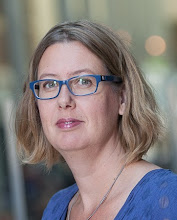Monday 15 June
From now on, I will write my blog on my visit in Nepal in English. So that my colleagues here at the conference can read it as well (and maybe someone can contribute to it by writing a guest-blog).
The previous blog (in Dutch) stopped with Prisca, Mala and me in the back of the car with Shavitri and the chauffeur. I will continue from there on.
Godavari
One minute we were diving through a colourful street of Kathmandu, next minute we rounded a corner and entered a quiet place full of flowers and singing birds, and overlooking the rice fields and the hills. I know it sounds like an advertisement, but it really is the way it is here. Also my room is very beautiful and convenient. Spacious, with no less than six windows looking at three different directions, a wooden floor, a writing table, a bottle of water waiting.

After arriving and admiring my room, I went for a swim in the swimming pool. Best thing to do after a long journey, when you want to relax your muscles but do not want to lay down (afraid of falling asleep and waking up at inconvenient times for the rest of the week).
At dinner I met most of the rest of the group: Marije, Loeky, Qi, Diane, Marieta and Saskia. Anara was too tired for dinner after her travel form Kyrgyzstan. Marieta and Saskia had been shopping already, and showed us some of the things they bough: beautiful things made of felt, a marionette, a necklace. And all for astonishing low prices (the felt-tie for 2 eurocents, the necklace for 1 euro). At that time we though our change to buy the same stuff would come; by now we are not so sure about this. But that will come later, just like the question about women’s rights activists and travelling in trousers.
Political situation (and how that is related to trousers)
This morning, Rachana and Subarna joined us. They both work with WOREC, the Nepalese organisation that hosts our meeting joined us.
The first message we got that there was some kind of ‘political situation’ going on. Obviously, a member of the maoist party had been shot, and because of that the Maoists ordered a strike. This included a prohinition of travelling, other tan by feet. This meant that Aurela, who was about to join us this morning, would not be able to make it from the airport to Godavari. And it might also effect the program of the week, which includes a fieldtrip to rural Nepal, to visit some grassroot women’s organisation, and of course the shopping in Kathmandu. But our first worries were about Aurela. Luckily, after a few hours we received the message that they head been able to bring her from the airport to the WOREC-office in town (partly walking, partly by riksha). And a few hours later, she walked into the conference room. She had been brought to the resort at the back of a motor cycle, with some of her luggage in a small bag, and the rest left at the office to be brought in tomorrow. We were very relieved to have her with us. At dinner Aurela told us the rather hilarious story of her travel on the bike. She had never been on a motorbike before, and was rather frightened. She therefore had to held the driver very closely. But by doing so, she could not keep her dress down. Well you can imagine the picture of a small Nepalese man with a big smile on his face, secretly driving his motorbike through narrow streets (to avoid the main roads, as driving still was not allowed officially) with a nice Albanian women holding him firmly and with her dress up in the air. So that is why women’s rights activists really should wear trousers when travelling.
Our work
Of course we did some serious work today as well. We looked at the structure of the draft instrument (in this project we are developing an instrument which can be used by women’s and human rights groups all over the world to assess the human rights compliance of legislation, policies and practices combating domestic violence) and had some good discussions on it. We also did a short inventory of problems the organisations might use the tool on; which gave a good impression of the range of topics that can be addressed by the instrument (for those of you who think domestic violence is just one topic: we came up with at least 20 different topics. Some examples: forced abortions because of preference for sons (Nepal, China), the lack of access to justice because the traditional justice system is not accessible for women (Zimbabwe), femicide (Peru), family courts not taking domestic violence into consideration (Netherlands), lack of resources for the implementation of policies (almost everywhere).
Tomorrow we will work further on the instrument. But first we will do a morning walk and visit a small temple and have a look at the beautiful surroundings. As we go walking, it is perfectly safe to do so.
- this blog will be posted on Tuesday; only the conference room has internet-access-


Geen opmerkingen:
Een reactie posten
Iedereen kan reageren. Je hoeft het natuurlijk niet me me eens te zijn, maar hou het wel fatsoenlijk.
Reacties die beledigend zijn (voor mij of voor anderen) zal ik verwijderen; net als gescheld en gevloek.